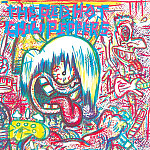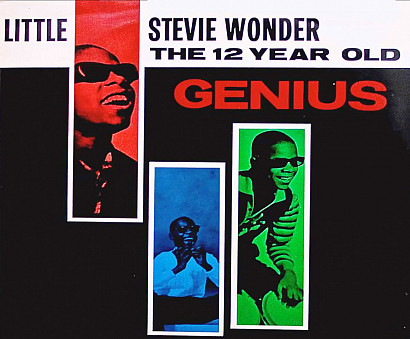10 AUGUST
Featured Events
2016 Chance the Rapper takes the #SoGoneChallenge, posting a video where he raps about his pregnant girlfriend (who is taking the video) over the track to Monica's 2003 hit "So Gone." It is quickly retweeted over 250,000 times and the challenge goes viral, with Snoop Dogg, Kevin Hart and Dwayne Wade joining in.More
 1984 Red Hot Chili Peppers release their self-titled debut album, an arduous collaboration with producer Andy Gill of the British rock band Gang of Four.More
1984 Red Hot Chili Peppers release their self-titled debut album, an arduous collaboration with producer Andy Gill of the British rock band Gang of Four.More
1976 Elton John begins a record-breaking 10-night run of concerts at Madison Square Garden in New York City.
1972 Paul and Linda McCartney are arrested backstage in Gothenburg, Sweden, for possession of six ounces of marijuana, which was mailed to them by someone in McCartney's office who thought they would like some weed on the road. The couple are released after paying a combined fine of $1,200.
1947 Jethro Tull leader Ian Anderson is born in Dunfermline, Fife, Scotland.
1943 Ronnie Spector of The Ronettes is born Veronica Yvette Bennett in New York City, New York.
10 AUGUST
In Music History
2020 Split Enz hit #1 in their native New Zealand with the 40th anniversary reissue of their album True Colours, knocking off Folklore by Taylor Swift, who was born nine years after the album was first released.
2013 Singer Eydie Gorme dies six days before her 85th birthday. She is survived by her husband of 56 years, Steve Lawrence, and a son, composer David Nessim Lawrence.
2013 Jody Payne (guitarist for Willie Nelson's band, The Family) dies of cardiac problems at age 77 in Stapleton, Alabama.
2012 Insane Clown Posse takes exception to the FBI naming their fans, collectively known as "Juggalos," as a criminal gang in the FBI's "2011 National Gang Threat Assessment Report." At the annual Gathering of the Juggalos event in Illinois, they announce intentions to sue the FBI. Despite this, the FBI continues to list Juggalos as an organized gang in later years.
2012 The bands Kiss and Motley Crue donate $100,000 together to the families of the victims of the Aurora, Colorado, "Dark Knight" shooting. The massacre occurred Friday, July 20 at a movie theater showing The Dark Knight Rises. James Eagan Holmes burst into the theater with guns blazing, killing 12 and wounding 58. The story rocks the United States and the ensuing trial of shooter Holmes, who was inspired by the actions of The Joker, a famed villain in the Batman franchise played by Heath Ledger, is to generate top headlines for many months yet.
2008 Soul singer/actor Isaac Hayes dies of a stroke in Shelby County, Tennesee, 10 days before his 66th birthday.
2007 Jon Foreman, frontman of Switchfoot, announces the band have left Columbia Records. Switchfoot goes on to create their own record label, lowercase people records.
2007 Laura Marling shares the stage with other Indie artists like Crystal Castles and Mystery Jets at the first-ever Underage Festival in Victoria Park, London. The festival, which grew out of a series of club nights in the Elephant and Castle district of South London, is open only to 13-17 year olds. At 17, Marling fits right in.
2006 R&B singer-songwriter Barbara George dies of a lung infection, paired with a history of liver disease and Hepatitis C, at age 63 in Chauvin, Louisiana. Known for the 1961 hit "I Know (You Don't Love Me No More)."
2005 The Rolling Stones build a buzz for their A Bigger Bang tour with a surprise warm-up show at the Phoenix Concert Theatre in Toronto, which holds about 1,000 people. Tickets are just $10, but many had to wait in line many hours to get them after hearing rumors of the show.
2004 The Rolling Stones drummer Charlie Watts confirms that he is undergoing treatment for throat cancer, which eventually goes into remission.
1997 Rush drummer Neil Peart loses his 19-year-old daughter Selena to a car accident. A year later, Selena's mother Jackie (Peart's common-law wife) dies of cancer, leading Peart to take a long sabbatical from the band where he rides his motorcycle across North America.
1996 Oasis play the first of two shows at Knebworth, England. One in 20 of the UK's population applies for a ticket, and the band plays to 125,000 people per night in what are the biggest gigs of the Britpop era.
1993 Ed Roberts (of Ruby & the Romantics) dies of cancer at age 57.
1987 Wilson Pickett is found guilty of threatening patrons at a New Jersey bar with a loaded shotgun after a brawl inside the club. He is given two years' probation and fined $1000.
Stevie Wonder Hits #1 With Live Stomper
 1963
1963Stevie Wonder's "Fingertips (Part 2)" becomes the first live recording to hit #1 in the US. It holds the position for three weeks.
At just 12 years old, Little Stevie Wonder is the star attraction of a Motown package tour called Motortown Revue. A virtuoso on drums, keyboard and harmonica, he's the consummate child prodigy despite being blind since birth. Opening for headliners including The Miracles, The Temptations and The Supremes, Stevie thrills audiences across the Chitlin' Circuit with his rambunctious, high-energy stagecraft. On March 10, 1963, Motortown Revue arrives at Regal Theatre in Chicago, where Wonder's performance is recorded. Stevie concludes his set with a highly improvised version of "Fingertips," a song written by Wonder's mentors, Clarence Paul and Henry Cosby, as a jazz instrumental for his first studio album, The Jazz Soul of Little Stevie. The crowd goes absolutely wild for the performance, prompting Wonder to initiate a call and response exchange: Everybody say "yeah!" After a couple of verses, Stevie appears to bring the song to a conclusion by playing a section of "Mary Had A Little Lamb" on his harmonica. His band exits the stage, while the band for the next act, The Marvelettes, comes on. At this point, Wonder suddenly begins playing again, causing the bass player for The Marvelettes, Joe Swift, to shout "What key? What key?" The performance resumes, with a brief encore played by an amalgamation of band members including Marvin Gaye, who started his career as a session drummer for Motown artists before becoming a famous singer in his own right. Motown releases the final three minutes of this performance as "Fingertips (Part 2)," issuing it as the B-side of a different performance of the first part of "Fingertips." "(Part 2)" gets the best response and becomes the hit. Stevie is launched to stardom in August 1963 when "Fingertips (Part 2)" becomes the first live recording to hit the top spot in the US, and Motown's second #1 after "Please Mr. Postman" by The Marvelettes. The song's success also helps Wonder's LP, Recorded Live: The 12 Year Old Genius, reach the top of the Billboard 200, making him the first (not to mention youngest ever!) artist to have a #1 album and single at the same time.
Categories
©2024 Songfacts®, LLC

Comments: 1
send your comment